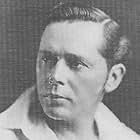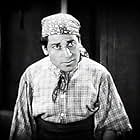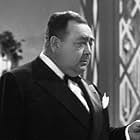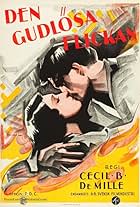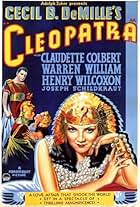During the Revolution Princess Vera, though betrothed to Prince Dimitri, is attracted to the peasant Feodor.During the Revolution Princess Vera, though betrothed to Prince Dimitri, is attracted to the peasant Feodor.During the Revolution Princess Vera, though betrothed to Prince Dimitri, is attracted to the peasant Feodor.
- Director
- Writers
- Stars
- Awards
- 1 win total
Charles Clary
- Red Army Officer
- (uncredited)
Gino Corrado
- White Army Officer
- (uncredited)
Malcolm Denny
- Undetermined Secondary Role
- (uncredited)
Lillian Elliott
- Landlady
- (uncredited)
John George
- Red Army Soldier
- (uncredited)
William Humphrey
- Head of the Tribunal
- (uncredited)
Viola Louie
- Undetermined Role
- (uncredited)
Ruth Miller
- Undetermined Role
- (uncredited)
Eugene Pallette
- Revolutionary
- (uncredited)
George Periolat
- Prince Nikita's Servant
- (uncredited)
- Director
- Writers
- All cast & crew
- Production, box office & more at IMDbPro
Featured reviews
Boatmen pulling boat--why not donkey?
There are two very interesting things about "The Volga Boatman". First, it stars William Boyde...about a decade before he catapulted him fron stardom to mega-stardom as the cowboy hero, Hopalong Cassidy. Second, the film is very sympathetic to the poor Russian people and the Bolsheviks...which is odd considering that the director, Cecil B. DeMille, was a rabid anti-communist. I am sure he regretted making such a movie in later years...and according to IMDB this is why he never made a sound version of this story.
The story is set just before the Russian Revolution of 1917. Some rich jerks have a confrontation with one of the boatman working along the river...making an unnecessary enemy in the process. Some time later, this boatman (William Boyd) is a Boshevik leader and he has an opportunity for revenge. What happens? Well, some romance! What else? See the film.
Like all of DeMille's silents, this one is lovely to look at. DeMille was great at making good looking movies. He was not, however, all that adept at relationships and people in his films...and here this is pretty much the case once again. For its time, it's a pretty good movie. When seen today, it's a bit slow and the characters in need of greater dimension and depth.
There are two very interesting things about "The Volga Boatman". First, it stars William Boyde...about a decade before he catapulted him fron stardom to mega-stardom as the cowboy hero, Hopalong Cassidy. Second, the film is very sympathetic to the poor Russian people and the Bolsheviks...which is odd considering that the director, Cecil B. DeMille, was a rabid anti-communist. I am sure he regretted making such a movie in later years...and according to IMDB this is why he never made a sound version of this story.
The story is set just before the Russian Revolution of 1917. Some rich jerks have a confrontation with one of the boatman working along the river...making an unnecessary enemy in the process. Some time later, this boatman (William Boyd) is a Boshevik leader and he has an opportunity for revenge. What happens? Well, some romance! What else? See the film.
Like all of DeMille's silents, this one is lovely to look at. DeMille was great at making good looking movies. He was not, however, all that adept at relationships and people in his films...and here this is pretty much the case once again. For its time, it's a pretty good movie. When seen today, it's a bit slow and the characters in need of greater dimension and depth.
Cecil B. DeMille was a strange chappy, full of contradictions. A notorious anti-trade unionist and later HUAC stooge, and yet certainly up until the early 1930s he held a bizarre love for Soviet Russia. The Volga Boatman is his only picture that reflects that love, and is among his stranger efforts which, as anyone who has seen Madam Satan or Four Frightened People will know, is really saying something.
The Volga Boatman is one of a number of pictures DeMille made with his own independent production company whilst on a period of absence from Paramount. It was around this period that DeMille began to lean towards the epic as his main area of expertise. Of course, his run of biblical extravaganzas began at Paramount with The Ten Commandments in 1923, and there is the massive Joan of Arc in 1916, but it is in this mid-to-late 1920s phase that the epic became, for him, the norm.
This all made good sense for DeMille. When it came to directing the masses, few directors did it better. His crowd shots are a blend of aesthetic stylisation (check out how he uses the musicians in the foreground to form a circle with the ceiling arch in the Jaroslav ballroom scene) and pure realism. DeMille always humanised the crowd by dropping in close-ups of individuals, such as the children shown in the opening scene. His use of space is also on top form here, with framing and distance showing characters' isolation or their position in the group.
But in all those years of directing small-scale dramas DeMille had also honed his ability to film human relationships. Editing patterns were becoming ever more fluid anyway as silent cinema developed, and DeMille had developed a knack of showing characters' views of each other and of situations without resorting to intertitles. The Volga Boatman has few words, but is full of meaningful glances, moody close-ups and subtle gestures. A good example is the scene where the three leads first meet all that really happens title-wise is Victor Varconi repeatedly yelling "Wipe it off!", but the various angles and reaction shots between the characters speak volumes and set up their relationships for the entire picture.
This was DeMille's first collaboration with screenwriter Lenore J. Coffee, and his first without any input from Jeanie MacPherson. If you have seen a lot of DeMille's silents, there is quite a noticeable difference. Gone are MacPherson's rambling moralist narratives and ridiculous albeit poetic personal philosophies. Coffee, while clearly not as mad as MacPherson, seems rather bland by comparison, and his words lack sparkle.
The acting too is not so special. Elinor Fair appears completely unable to emote realistically, and makes a poor lead. William Boyd is at least able to convincingly look mean (and cunning), but very little else. Villainously handsome Victor Varconi turns in the best performance, but I have seen better from him. Meanwhile Julia Faye and Theodore Kosloff provide cheerfully hammy comic relief, although the parts they have been given aren't very funny.
When you look at the DeMille pictures from the early 1920s, while there is sometimes good drama, something appears to be missing as DeMille strives for something grander, trying to shoehorn in "big" scenes. The Volga Boatman works because DeMille at last strikes his happy medium of showing the intense drama against the backdrop of large-scale action. His direction is on fine form here, and he is only let down by his collaborators. Mind you, in his role as exacting and all-powerful producer, DeMille could perhaps be blamed for accepting such a lifeless screenplay and cast. His poor judgement in these areas in many ways defines the style of his later pictures.
The Volga Boatman is one of a number of pictures DeMille made with his own independent production company whilst on a period of absence from Paramount. It was around this period that DeMille began to lean towards the epic as his main area of expertise. Of course, his run of biblical extravaganzas began at Paramount with The Ten Commandments in 1923, and there is the massive Joan of Arc in 1916, but it is in this mid-to-late 1920s phase that the epic became, for him, the norm.
This all made good sense for DeMille. When it came to directing the masses, few directors did it better. His crowd shots are a blend of aesthetic stylisation (check out how he uses the musicians in the foreground to form a circle with the ceiling arch in the Jaroslav ballroom scene) and pure realism. DeMille always humanised the crowd by dropping in close-ups of individuals, such as the children shown in the opening scene. His use of space is also on top form here, with framing and distance showing characters' isolation or their position in the group.
But in all those years of directing small-scale dramas DeMille had also honed his ability to film human relationships. Editing patterns were becoming ever more fluid anyway as silent cinema developed, and DeMille had developed a knack of showing characters' views of each other and of situations without resorting to intertitles. The Volga Boatman has few words, but is full of meaningful glances, moody close-ups and subtle gestures. A good example is the scene where the three leads first meet all that really happens title-wise is Victor Varconi repeatedly yelling "Wipe it off!", but the various angles and reaction shots between the characters speak volumes and set up their relationships for the entire picture.
This was DeMille's first collaboration with screenwriter Lenore J. Coffee, and his first without any input from Jeanie MacPherson. If you have seen a lot of DeMille's silents, there is quite a noticeable difference. Gone are MacPherson's rambling moralist narratives and ridiculous albeit poetic personal philosophies. Coffee, while clearly not as mad as MacPherson, seems rather bland by comparison, and his words lack sparkle.
The acting too is not so special. Elinor Fair appears completely unable to emote realistically, and makes a poor lead. William Boyd is at least able to convincingly look mean (and cunning), but very little else. Villainously handsome Victor Varconi turns in the best performance, but I have seen better from him. Meanwhile Julia Faye and Theodore Kosloff provide cheerfully hammy comic relief, although the parts they have been given aren't very funny.
When you look at the DeMille pictures from the early 1920s, while there is sometimes good drama, something appears to be missing as DeMille strives for something grander, trying to shoehorn in "big" scenes. The Volga Boatman works because DeMille at last strikes his happy medium of showing the intense drama against the backdrop of large-scale action. His direction is on fine form here, and he is only let down by his collaborators. Mind you, in his role as exacting and all-powerful producer, DeMille could perhaps be blamed for accepting such a lifeless screenplay and cast. His poor judgement in these areas in many ways defines the style of his later pictures.
DeMille's tendency to overstate is unbridled, making this a little overdrawn even for a silent epic. Every scene is an epic unto itself and staged as such. It unfolds coherently with DeMille's relentlessly chronological epic momentum, but it drags in many places for lack of editing. Boyd is definitely charismatic in the role that launched his career as a silent matinee idol. His blue eyes rivet the camera even in black-and-white. The pure idealism that he brought to bear in over 50 subsequent stints as Hopalong Cassidy radiates from his Wagnerian portrayal of this bolshevik boatman who cannot betray what he knows in his heart--the universal cowboy hero of every Saturday morning in any get-up. The electricity is there between Boyd and his soon-to-be bride in real life, Elinor Fair, as the princess-in-love-with-the-noble-peasant. Julia Faye adds needed sensuous energy with her tawdry portrayal of the Tartar peasant girl (who also lusts after Boyd, of course). All the elements of human emotion against an epic backdrop are here, and DeMille develops them all as thoroughly as the themes in any of Bach's "Two and Three-Part Inventions". Great piano score from the original cue notes, too, b/t/w.
William Boyd (as Feodor) is a Volga river boatman "whose broad breast and ringing voice never tired because he dreamed a dream of freedom." Elinor Fair (as Princess Vera) is "in that delightful feminine state of intending to say 'yes' but acting 'no'" to Victor Varconi (as Prince Dimitri Orloff), "an Officer of the Czar's Guard" who is "just a man waiting for a woman's 'yes' or 'no'." Ms. Fair and Mr. Varconi become engaged, but the Princess falls in love with the un-Princely Mr. Boyd. Their entanglements are played out against the Russian Revolution.
Nice looking film by Cecil B. DeMille, J. Peverell Marley, and others. The performances begin well; especially future "Hopalong Cassidy" star Boyd - in his scene meeting Fair and Varconi, Boyd intensely shows anger, lust, and disgust. Unfortunately, the film peaks there. If you make it through the running time, you should watch for the scene when Boyd gives Fair five minutes say her prayers, before he means to kill her - she rips her dress a little to mark her upper chest with an "X" for his targeting convenience! There are some additional titillating strip scenes (which don't titillate, by the way).
"The Volga Boatman" is as slow moving and predictable as its protagonist. Theodore Kosloff, Julia Faye, and Robert Edeson try to liven things up among the Red Russians. White Russian Varconi makes a wise decision at the end. Off-screen, Boyd and Fair would marry; surprisingly, there is noting very extraordinary about their on-screen romance - they look better with Faye and Varconi...
***** The Volga Boatman (1926) Cecil B. DeMille ~ William Boyd, Elinor Fair, Victor Varconi
Nice looking film by Cecil B. DeMille, J. Peverell Marley, and others. The performances begin well; especially future "Hopalong Cassidy" star Boyd - in his scene meeting Fair and Varconi, Boyd intensely shows anger, lust, and disgust. Unfortunately, the film peaks there. If you make it through the running time, you should watch for the scene when Boyd gives Fair five minutes say her prayers, before he means to kill her - she rips her dress a little to mark her upper chest with an "X" for his targeting convenience! There are some additional titillating strip scenes (which don't titillate, by the way).
"The Volga Boatman" is as slow moving and predictable as its protagonist. Theodore Kosloff, Julia Faye, and Robert Edeson try to liven things up among the Red Russians. White Russian Varconi makes a wise decision at the end. Off-screen, Boyd and Fair would marry; surprisingly, there is noting very extraordinary about their on-screen romance - they look better with Faye and Varconi...
***** The Volga Boatman (1926) Cecil B. DeMille ~ William Boyd, Elinor Fair, Victor Varconi
I thought Volga boatmen were workers on boats that traveled on the Volga river. I was shocked and pained to see they were human beasts of burden. C.B. DeMille got his message through to me - loud & clear. He set a very high production & story telling standard for his contemporaries and all those who would follow him. William Boyd's eyes pierce your soul. He is very exotic looking. He did an excellent job portraying an idealistic Bolshevik leader. It was interesting viewing to watch him struggle with the challenges he encountered while battling for freedom. (If I were Princess Vera, I wouldn't be able to give him up either.) The Silent movies you have to sit down, watch and concentrate. This film, its' story and William Boyd are unforgettable.
Did you know
- TriviaJulia Faye replaced Jetta Goudal, who was fired after repeatedly clashing with director Cecil B. DeMille.
- Quotes
Feodor, A Volga Boatman: I love you - with the last beat of my heart.
- ConnectionsFeatured in Cecil B. DeMille: American Epic (2004)
- SoundtracksSong of the Volga Boatmen
By Sigmund Spaeth
Harmonized by Carl Deis, c. 1926
'the immortal song that inspired the Cecil B. DeMille motion picture production "The Volga Boatman" with William Boyd and Elinor Fair'
Details
Box office
- Budget
- $497,356 (estimated)
- Runtime2 hours
- Color
- Sound mix
- Aspect ratio
- 1.33 : 1
Contribute to this page
Suggest an edit or add missing content













